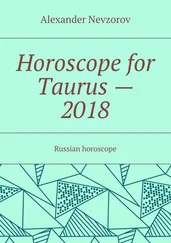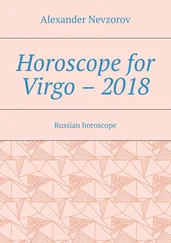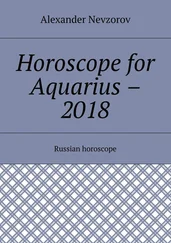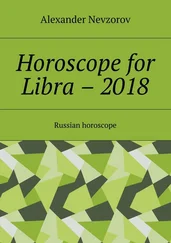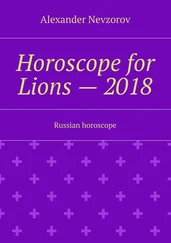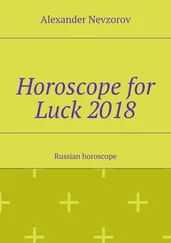The fixed group – 69696 - is given by the Centre and changed only on orders from the Centre.
The message group is, for the first recognition group, the fifth group of the message as enciphered so far, i.e., 43290; for the second recognition group, the message group is the fifth group from the end of the message as enciphered so far, i.e., 69482.
Now in each case the code book group, the fixed group, and the message group are added together. Thus:

These two totals are now inserted in the appropriate spaces in the already enciphered message and the final result reads as follows:

DECIPHERMENT
In decipherment, naturally, the first essential is to unravel the components of the two recognition groups. To illustrate this process clearly, let us recapitulate how the two recognition groups were arrived at. The first recognition group was composed of the code book group (C), the fixed group (F), and the fifth group of the enciphered message (not counting the blank) (Ml); the second recognition group was composed of the code book group (C), the fixed recognition group (F), and the fifth group from the end of the enciphered message (not counting the blank) (M2). Therefore the first recognition group is made up of C+F+Ml, and the second recognition group is made up of C+F+M2.
To break down the first recognition group, subtract from it the fixed group (69696- already known by agreement) (F), and the sixth group of the completed message (Ml), thus leaving C. The second recognition group is really only a cross-check, for on subtracting from it F and M2 the result should also be C.
Once C is known, the corresponding passage in the key book can be turned up, and the decipherment follows by using the reverse procedure of the encipherment.
APPENDIX B. Connections between the Swiss Network and the Canadian Spy Case
The material upon which this Appendix is based is all available in the report of the Royal Commission with special reference to Section 6, pages 567-613, which section gives the interrogation of Hermina Rabinowitch. A serious student of the subject is recommended to refer to the report. This Appendix merely gives a shortened version of the evidence available in the report with my comments upon it. It is unnecessary here to quote in full the lengthy interrogation of Hermina Rabinowitch, which led up to the establishment of the Commission's conclusions.
There are five relevant documents concerning the connections between Canada and the network with which I was concerned in Switzerland. They are a four-page document written in Russian by Motinov (cover name "Lamont"), the assistant military attaché; a typewritten letter addressed to Rabinowitch and signed "Gisel"; a report in Russian on an interview between Koudriavtzev, First Secretary of the embassy (cover name "Leon"), and Rabinowitch; two reports on meetings between Koudriavtzev and Rabinowitch, and a typewritten letter from the latter.
The first document shows that in December 1943 Her- mina phoned Tounkin, the counsellor of the Soviet Embassy in Ottawa, and asked to be received on an urgent matter. She was ultimately received by him and outlined to him the gist of the matter which she wished to discuss and after that she wrote him a letter on March 9, 1944, saying that she had received through a reliable channel a letter from a friend in Geneva. The contents of this letter are as follows:
We live in the former apartment and are working as previously in the old firm. Some two weeks ago Sisi sent you a telegram. Tell us how did your journey to Gisel's parents turn out. My health is excellent. Albert is sick and will probably leave his profession for a long time, he is laid up in bed. Relations with Lucy are good, she is a very good woman. Gisel's family is for some reason no longer interested in her, although up to this time there was support. Lucy's situation has improved. Sisi's position is sad. Please inform Gisel's parents that they must remit 6,700 dollars. This sum must be handed over through you. There are no other possibilities. The Gisels must bear these expenses. Advise me about Aleksander where is he. Rachel.
It took the Royal Commission some time to unravel the meaning of this letter, and in some respects their deductions were incorrect. Small blame attachés to the Commission on this point as they were not in possession of the information regarding our network in Switzerland which is now available to the reader of this book. Before considering the actual meaning of this letter it is as well to remember the situation at the end of 1943 and the beginning of 1944. At this period the network was in a state of disorganisation. Rado was in hiding; I was in prison, having been arrested in November 1943; contact with the Centre had been lost and Cissie was without funds but was still receiving Lucy's information, for which she had to pay. With that background in mind it is possible to analyse the message. "Working as previously in the old firm" of course means that Cissie was continuing her work for the Centre. Sisi is of course the same as Cissie, in other words Rachel Duebendorfer. The reference to Gisel is obscure. According to Gouzenko, Gisel was a cover name for the Red Army Intelligence Service. This may be correct. On the other hand Gisel may possibly be the cover name for some individual in the Centre who may have been known not only to Cissie but also to Her- mina. The sentence, "Tell us how did your journey to Gisel's parents turn out" may well mean "How did you get on with the Russians in Canada?" The next sentences, "My health is excellent. Albert is sick and will probably leave his profession for a long time, he is laid up in bed," will present no difficulty to the reader, accustomed as he is to the jargon of the Centre. It is implied of course that Cissie is at liberty while Albert, i.e., Rado, was compromised and would probably have to cease being an agent for some time and was in hiding.
The next portion of the message referred of course to Selzinger (cover name Lucy), our source who supplied information from Berlin. "Relations with Lucy are good, she is a very good woman," i.e., "We are still receiving information from Selzinger, who is working well." "Gisel's family is for some reason no longer interested in her, although up to this time there was support. Lucy's situation has improved." That is to say, the Centre is for some reason no longer interested in information supplied by Lucy, although they had shown interest up to that time. The last sentence about Lucy's situation is somewhat obscure, but may mean that Selzinger was in a position to get even more information.
The next portion of the message was the one which in the Centre's view caused all the trouble. "Sisi's position is sad. Please inform Gisel's parents that they must remit 6,700 dollars. This sum must be handed over through you. There are no other possibilities. The Gisels must bear these expenses." This message is perfectly clear. Cissie's financial position was precarious and Hermina was to inform the Centre that they were to send $6,700 through Hermina, as there were no other means of obtaining money.
The last sentence, "Advise me about Aleksander where is he," is a sentence where I think that the Commission went somewhat astray. They identify Aleksander with Alexander A . . . whom I take to be Isaac, one of Cissie's sources in the I.L.O. It is not surprising that the Commission was confused, because Alexander A...is mentioned later, as he was the cut-out for this transaction. In point of fact I am certain that that Aleksander referred to in this sentence is myself. Cissie was unaware of my cover name Jim, and knew me only by my real name, which she had learnt from the members of the Abwehr who had visited her that summer and asked about me. It will be remembered that at this time we were not in touch as Rado had refused to allow us to meet, so she would have to refer to me by my real Christian name. At that early stage she would have been unaware that I was under arrest and might have thought that I was still in hiding. The signature "Rachel" is of course Rachel Duebendorfer.
Читать дальше






